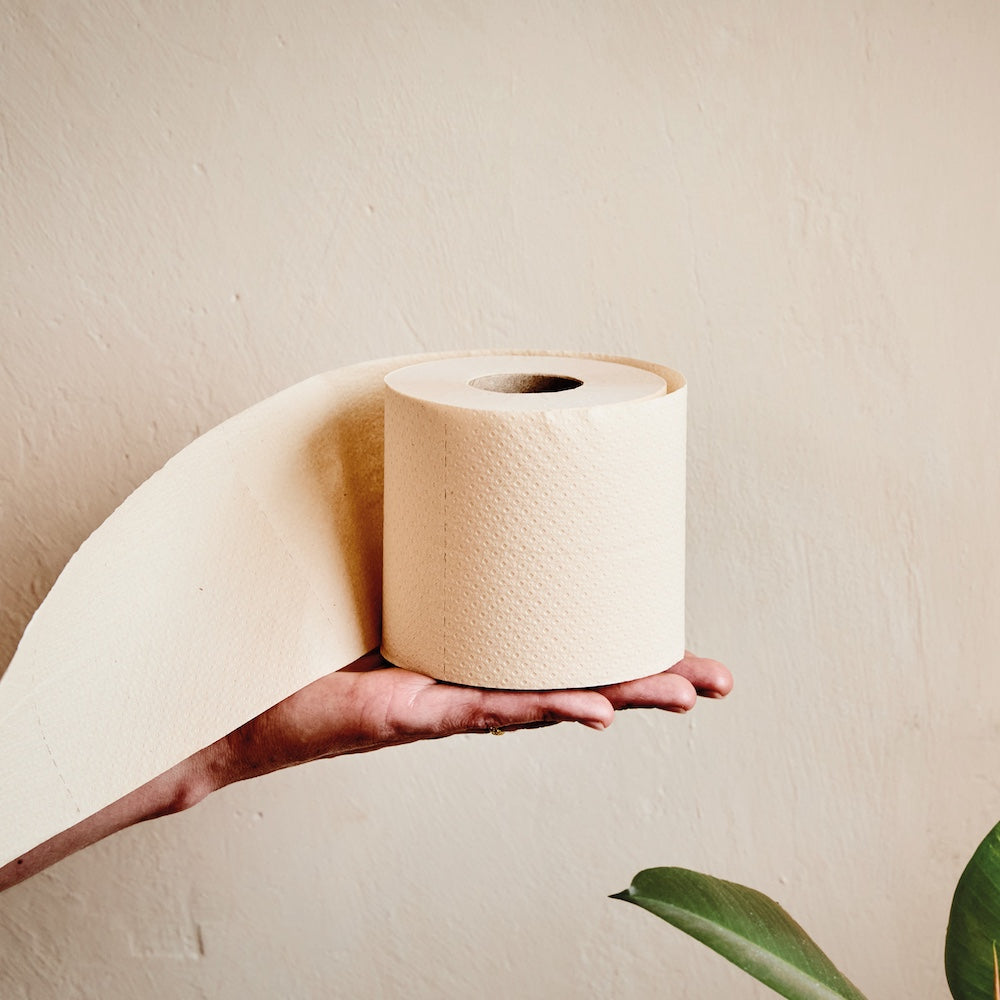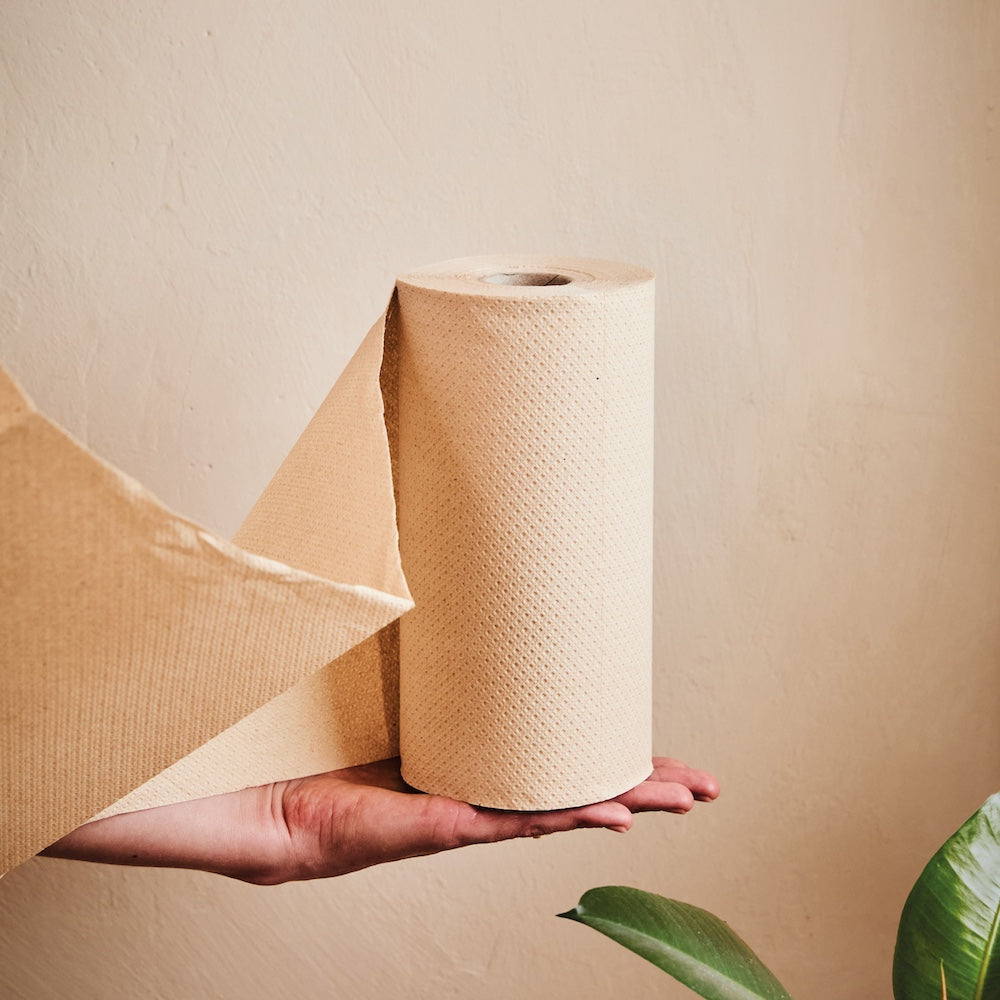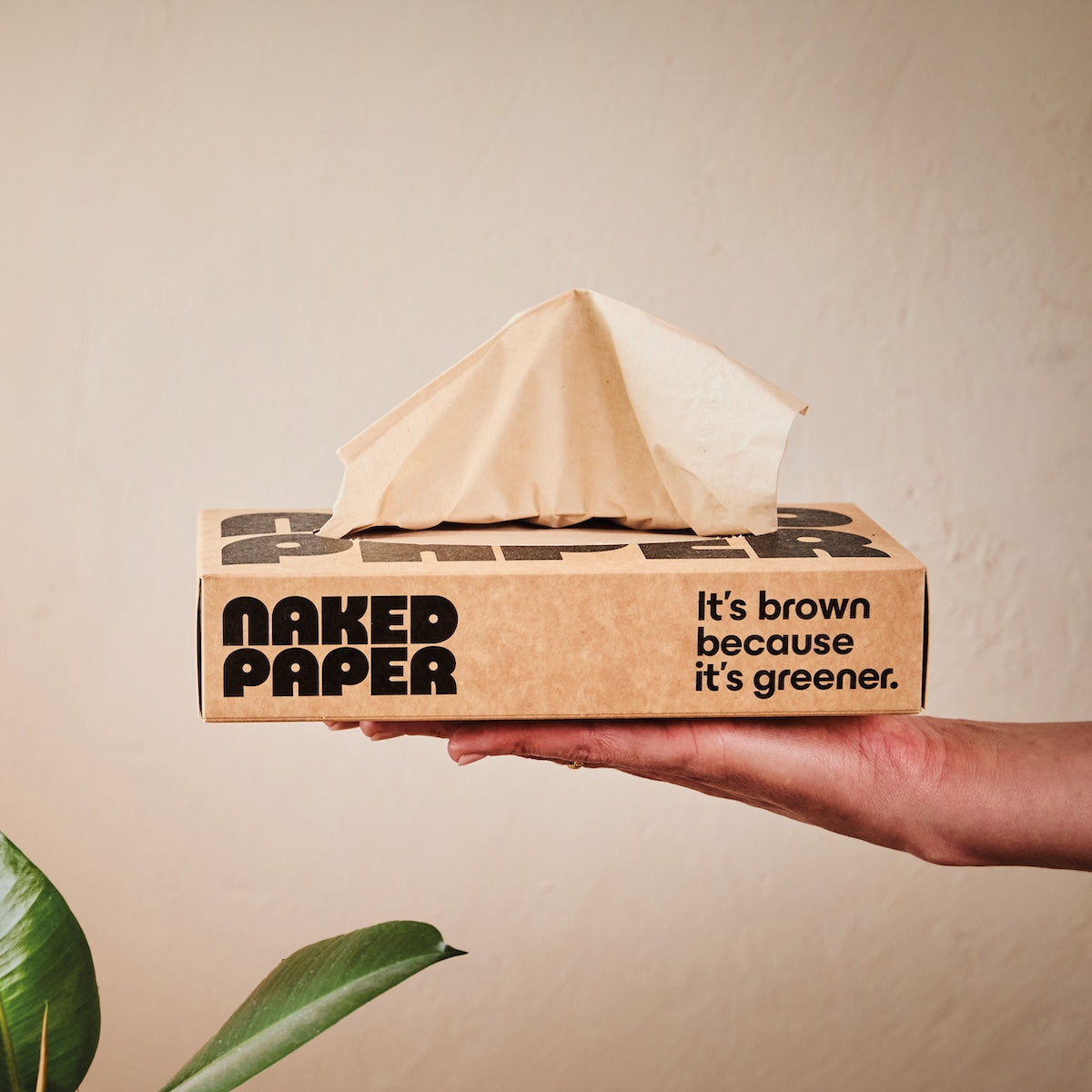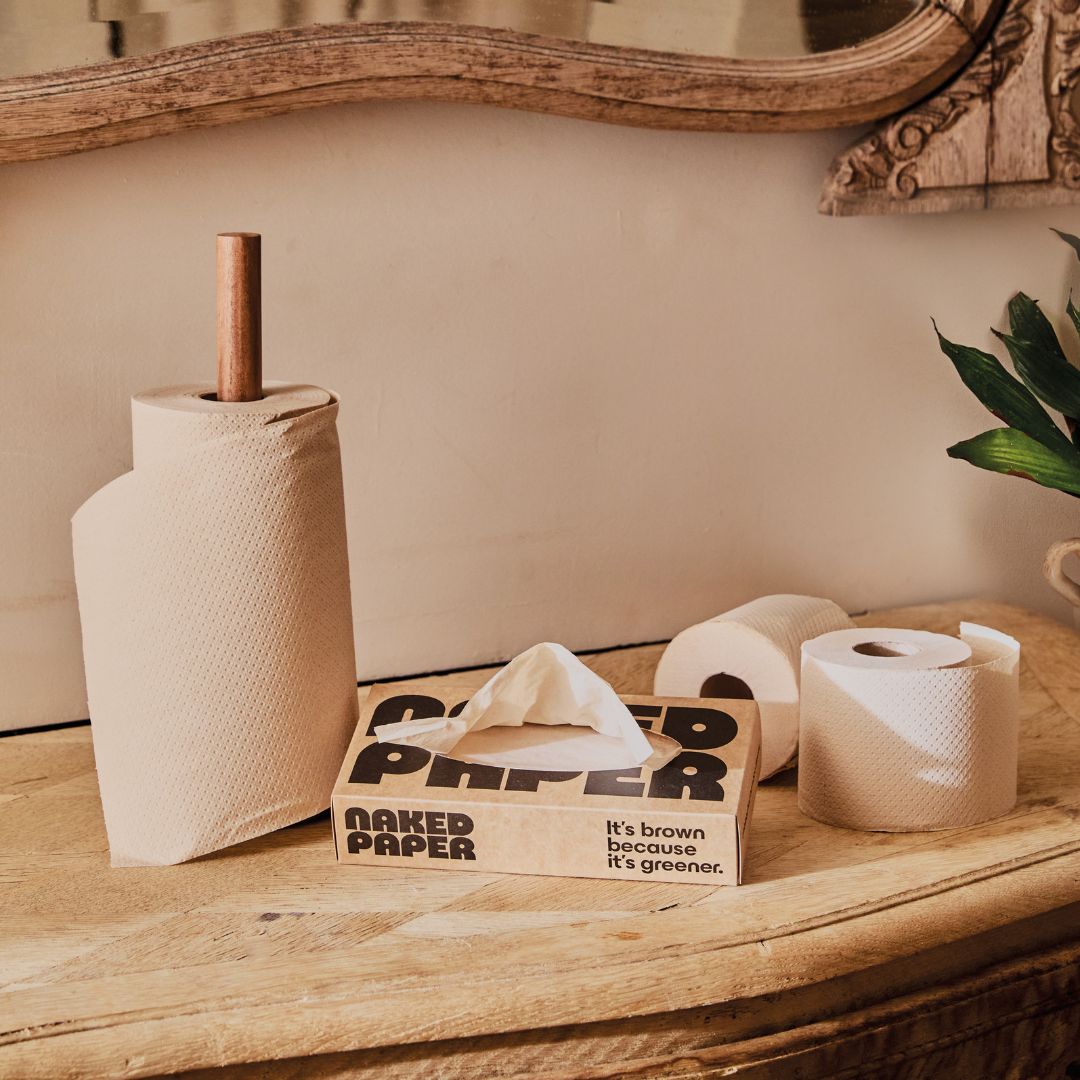The good and bad of bamboo toilet paper

Bamboo has become a popular choice for single-use products in recent years – from cutlery and food containers to cotton buds and clothing. And one place where bamboo is quite literally on a roll is the world of sustainable toilet paper.
The appeal is simple: bamboo is fast-growing and highly renewable. As a result it’s often seen as a more sustainable alternative to the traditional material used for toilet paper; trees.
But does bamboo loo roll really offer meaningful benefits? And is it the right choice for your home?
As UK toilet paper manufacturers making bamboo tissue products that have recently won a Royal award for sustainability, we’re obviously a bit biased. But in the interests of fair play, we’ll take a closer look at both the advantages and the limitations of bamboo toilet paper – so you can decide for yourself.

What’s good about bamboo toilet paper?
Let’s start with the positives. There are several practical and environmental benefits to bamboo toilet paper that make it a strong alternative to traditional wood-based toilet paper, or recycled alternatives.
1. Bamboo toilet paper is naturally soft and strong
Bamboo fibres are smooth by nature, which makes for a softer paper without needing extra processing. This combination of softness and strength is one reason why bamboo toilet paper, hand towels, and napkins are often used in hotels and hospitality settings. The tissue feels noticeably smoother than tree-based alternatives, and is often more robust than recycled tissue as well.
For many of our customers, the soft, smooth feel of Naked Paper is one of the first things they notice when making the switch, so it often gets mentioned in our product reviews. Here’s one of our recent 5 star reviews:
“Love its smoothness...”
Short and sweet, thanks Veronica!

2. Lower impact on the environment
Unlike trees, bamboo is a type of grass. It doesn’t need to be uprooted during harvesting – just cut at the stem, and it grows back quickly. In fact, some species of bamboo grow nearly a metre a day, without the need for fertilisers or replanting.
This regrowth makes bamboo an unusually efficient crop. It uses less water than most timber sources and requires less land to grow at scale. It also grows well without pesticides, making it a lower-input material overall.
At Naked Paper, the bamboo we use comes from naturally occurring forests rather than monoculture plantations. These forests support biodiversity and help maintain healthy ecosystems, which is a key difference compared to intensively farmed timber.

3. Septic friendly toilet paper without extra chemicals
Bamboo has naturally antibacterial properties. It also tends to be hypoallergenic, which makes it well-suited to sensitive skin.
At Naked Paper we treat this remarkable raw material with respect. We don’t bleach or dye our toilet paper. There’s no need for it – and doing so would only add more chemicals into the process. Naked Paper toilet paper is free from PFAS, BPA, and other harsh chemicals that don’t belong in a product you use every day.
Because the fibres dissolve easily, bamboo toilet paper is also suitable for septic systems and modern sewerage treatment processes. So your lovely, soft, bleach free toilet paper is smooth when you use it, and goes easy on your plumbing as well.

What are the drawbacks of bamboo toilet paper?
While there are real advantages to using bamboo, there are some potential drawbacks to look out for. As with any product you use every day, it’s worth being aware of where it can fall short. .
1. Bamboo toilet paper can cost more
Bamboo toilet paper is often priced as a premium product. Because it’s a relatively new raw material for toilet paper it’s not commonly used by the very large and established brands, so toilet paper manufacturers using bamboo are often manufacturing at a smaller scale. Added to that, many eco brands sell their products directly to customers and deliver to their homes, which can add to the price.
That said, it doesn’t have to be expensive. At Naked Paper, we’ve worked hard to keep prices low without compromising on quality. On a per-sheet basis, our bamboo toilet paper is currently the most affordable of its kind in the UK – and less expensive than several well-known supermarket brands. Free next-day delivery is also included with every order of our toilet paper, so you’re not paying extra for convenience.

2. Transport emissions can add up (but not always)
A common question we hear is whether transporting bamboo from overseas outweighs its environmental benefits. The answer depends on how it’s transported and where the final product is made.
Toilet paper is bulky, lightweight, and contains a lot of air, as well as featuring a hole in the middle, meaning each KG of product takes up a lot of room in shipping. Transporting bamboo toilet paper all the way from China, like many eco toilet roll brands do, is an inefficient undertaking. At Naked Paper, we’ve upped the efficiency by importing bamboo itself, not finished rolls, in the form of dehydrated bales of raw bamboo pulp. These compact blocks of bamboo travel to our factory in Spain by sea.
More importantly, we don’t manufacture the toilet paper in high-emission facilities. Our family-run factory in Spain doesn’t rely on fossil fuels, and the paper-making and drying process – the most carbon-intensive part – is powered using renewable wind, sun, and biomass energy generated on site.
This means our total emissions are significantly lower than those of bamboo toilet paper made in China, conventional UK-made recycled toilet paper, and virgin paper made from trees. We don’t rely on the dubious method of offsetting to accomplish this – we simply emit less in the first place.

3. All the unnecessary extras
Many bamboo brands wrap each roll in bleached and colourfully dyed paper. While this may improve the look of the product, it doesn’t improve its performance – and it increases the environmental footprint.
Every bit of dyed or bleached paper requires extra stages of manufacture. Every container of bleach or dye has to be manufactured, printed, and eventually thrown away. We have a clear position on these kind of choices, they’re unnecessary and the extra impact on the environment, for the sake of appearances alone, just isn’t worth it.
Our approach is different. We keep the paper bleach-free and free from wrapping too. No glossy finishes, no extra waste. Just strong, soft, sustainable toilet paper delivered in fully recycled, easily recyclable packaging.

Bamboo toilet paper with benefits (and none of the drawbacks)
Bamboo toilet paper is a strong alternative to both virgin and recycled wood-based paper. It’s soft, sustainable, and performs well in daily use. It’s especially well suited to households looking to reduce chemical exposure or lessen their environmental impact.
That said, the benefits aren’t guaranteed across the board. How the bamboo is grown, processed, transported, and packaged all make a difference. The best products are those that prioritise substance over style – low emissions, minimal additives, and thoughtful design.
So overall, if you’re considering switching to bamboo toilet paper, look closely at how it’s made, not just what it’s made from.
Want to try toilet paper made with soft, bleach-free bamboo?
Recent blog posts
-

Our footprint stage one: raw materials
People are often interested to learn more about how we make Naked Paper, and the CO2e emissions* involved at every stage. So we're breaking it all down, from root to roll, starting with our raw materials and how they get...
-

Can you recycle kitchen roll?
It’s a common scene; You’re standing in your kitchen, holding an empty jar or box or bottle, or (if you’re one of our lovely customers), a sheet of bleach-free kitchen roll. You’re hovering over the recycling bin, and you’re wondering: can...
-

What is PFAS-free toilet paper?
It’s hard to imagine a more everyday product than toilet paper – tissue sheets wrapped around a cardboard core. It’s a simple daily convenience and most of us don’t think much about it. But in 2023 scientists discovered an alarming fact about...








